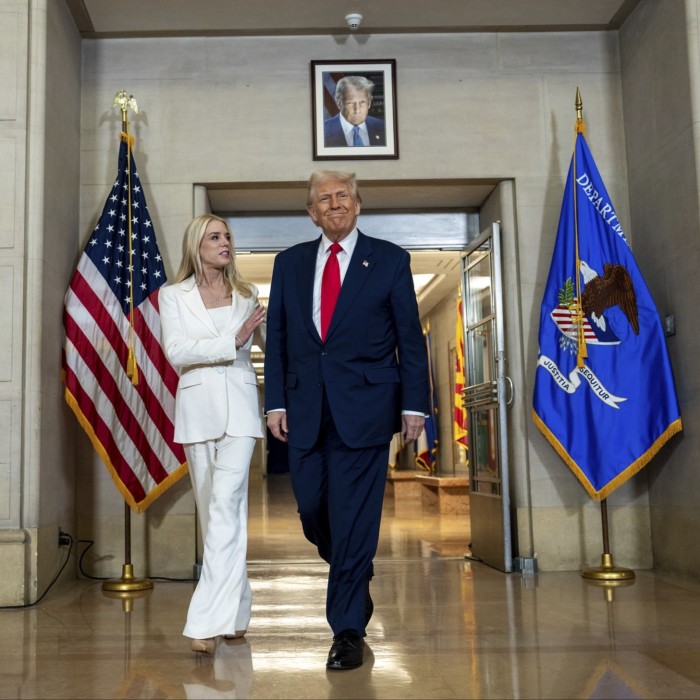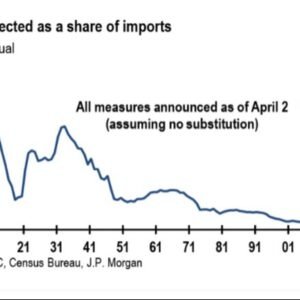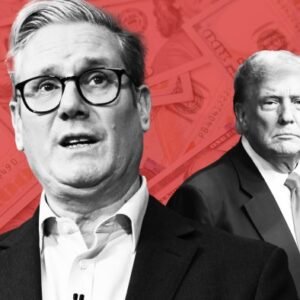In the mid-1980s, Arthur Liman was almost certainly the most acclaimed corporate lawyer in America.
As a star dealmaker at Paul, Weiss, Rifkind, Wharton & Garrison, Liman negotiated on behalf of corporate raiders such as Ron Perelman and defended “junk bond king” Michael Milken in federal court.
But he also won a reputation as a dedicated part-time public servant. Liman led high-profile investigations into the Attica prison riot in the 1970s and of President Ronald Reagan’s Iran-Contra scandal in the 1980s.
Rising through the ranks at that time was Brad Karp, a Harvard law graduate who joined Paul Weiss in 1985. A quarter-century later, Karp would take the helm of the firm, which has since grown to 1,200 lawyers strong. He explicitly moulded it in Liman’s image: a decisive presence across corporate law practices, with lawyers who carry an ethos of public service, seriousness and sobriety.
Yet within a few days last month, that carefully constructed edifice was challenged at its core.
President Donald Trump issued an executive order that in effect banned Paul Weiss from appearing in federal courts and cases over claims that its work on progressive causes undermined the judicial system and that its pro-diversity hiring policies were illegal. The edict threatened the survival of Paul Weiss, Karp claimed.
Paul Weiss is not the only firm to have been targeted by the Trump administration, and judges have since frozen critical parts of similar orders against Jenner & Block, WilmerHale and Perkins Coie for being illegal.
But rather than litigate, Karp cut a deal with Trump that cancelled the executive order in exchange for concessions including $40mn worth of pro bono legal services on issues important to the president.
The deal Karp signed sent shockwaves through the American legal establishment because it highlights the growing identity crisis among many of the larger law firms — especially those with a strong connection to Wall Street.
The Financial Times spoke to 35 corporate lawyers and legal insiders for this story, although many requested anonymity due to concerns about retaliation from the president and his associates.
Within Paul Weiss, some lawyers in the litigation department — once its key strength — were disturbed to see a powerful institution swiftly cede the high ground, especially one that had the firepower within its own ranks to fight, say people with direct knowledge of the matter. But many of the lawyers in its ascendant mergers and acquisitions and private equity groups were relieved. Ultimately, there was unanimity among the senior management to settle.
Over the past two decades, dealmaking has become a much more important part of the business models of many of the larger firms, buoyed in part by the explosive growth of the private equity industry and hedge funds. This shift has brought with it a coterie of star lawyers and pay packages that mirror those of their Wall Street clients.
The threats from the Trump administration are playing into this culture clash between the litigation business — where some lawyers would take it as a point of pride to be seen standing up to the government — and the deals lawyers, who tend to be more focused on the short-term flow of transactions and whose incentives are to keep out of the government’s crosshairs.
The dilemma that Paul Weiss faced is now being felt in other parts of the industry as Trump broadens his assault on the sector. While some such as Perkins Coie, Jenner & Block and WilmerHale have resisted, others have not; Skadden Arps, an arch-rival to Paul Weiss for many of its corporate clients, reached a deal with Trump to offer $100mn worth of pro bono services to avoid being hit by an executive order.
On Tuesday, Willkie Farr & Gallagher reached a similar agreement to the one Skadden struck, becoming the third major firm to forge a deal with the White House.

The industry is divided over how to respond. While a large number of small and medium-sized firms are willing to support Perkins Coie in its legal effort to fight sanctions imposed by the Trump administration, the Financial Times revealed at the weekend that not one of the 20 top law firms in the US — most of which have large dealmaking businesses — has so far given their “unconditional support” to the effort.
Although Paul Weiss was the first elite law firm to buckle to Trump’s demands, several leaders from rival firms told the Financial Times privately that they would cut similar deals if targeted with an executive order.
Karp told his colleagues that there was “no right answer” to the administration’s threats. “It is very easy for commentators to judge our actions from the sidelines,” he wrote in an email. “But no one in the wider world can appreciate how stressful it is to confront an executive order like this until one is directed at you.”
But by making his choice, Karp seemed to tacitly concede that exalted law firms can no longer reconcile the disparate values that his mentor had championed decades earlier.
“Arthur Liman saw the law as a noble profession and not just as a commercial enterprise,” Karp said in a 2019 interview with American Lawyer magazine. “He inculcated in me the belief that giving back to the community and safeguarding the rule of law is an essential part of what it means to be a lawyer.”
Since his first day back in the Oval Office, Trump has targeted perceived threats to his interests and worldview, singling out academic institutions like Columbia University and cultural institutions such as the Kennedy Center. Then in February, just one month into his second term, the president set his sights on Big Law.
The White House first went after Covington & Burling, a prominent firm in Washington known for its regulatory work. Trump then issued an executive order against Perkins Coie, citing its representation of Hillary Clinton and George Soros, before zeroing in on Paul Weiss.
For Karp, who has chaired Paul Weiss since 2008, the attack has represented a brutal personal reversal. An outspoken Wall Street supporter of the Democratic party, he had helped raise millions of dollars for Kamala Harris. Had she won, Karp was in the running to be US attorney-general, the highest ranking lawyer in America, according to multiple Democratic party operatives and donors.
His decision to cut a deal with the man he had worked tirelessly to keep out of office does not represent an ideological shift, according to people briefed on the matter. In Karp’s mind, the livelihoods of his thousands of employees were at stake.


One person close to Karp says the decision was excruciatingly painful for the 65-year-old: “He wasn’t just thinking about his own interests, he did it for the thousands of people who work there: the secretaries, the associates, the young partners who would have their financial lives adversely affected if the deal did not go through.”
Shortly after Trump targeted Perkins Coie and Covington, Karp contacted the heads of several law firms to try to organise support for them. The response was almost non-existent, and also failed to materialise when the White House issued an executive order against Paul Weiss.
“Disappointingly, far from support, we learned that certain other firms were seeking to exploit our vulnerabilities by aggressively soliciting our clients and recruiting our attorneys,” he wrote in the email to employees of the firm after he reached a deal with Trump.
Once Karp realised there was no united front to fight the executive order, the pressure grew to find an alternative solution. Some clients warned the firm’s partners that unless the matter was resolved swiftly, they would move their business elsewhere. Rumours swirled that competitors were circling Paul Weiss’s top talent, ready to pounce whenever the opportunity arose.
Under mounting pressure, Karp travelled to Washington in mid-March to meet Trump to plead for clemency. During the meeting at the Oval Office, in a move that was not expected by Karp, the president patched in on speaker Robert Giuffra, the co-chair of rival firm Sullivan & Cromwell and a Trump donor, to help hammer out a truce.
Karp swallowed his pride and agreed to the terms imposed by Trump. People close to Karp said that Paul Weiss did not actually make any big concession but agreed that the symbolism of what went down at the White House, while demeaning, was ultimately pragmatic.
“We’ve used Paul Weiss forever and . . . we would have had to seek new counsel if they didn’t settle,” says a person working at a company that regularly hires Paul Weiss and has ties with the federal government. “Brad did the right thing, although we realise it must have been humiliating for him and the legal industry . . . the problem isn’t Brad but it’s Trump.”
Yet Paul Weiss’s need to strike a deal with the administration in the first place is in part a symptom of how the law firm has morphed in recent decades into a mainstay of Wall Street, with salaries and culture to match.
Paul Weiss is one of a handful of firms that has created a thriving free-agent market for lawyers. Partners a decade ago would make perhaps $3mn or $4mn a year and would enjoy lifetime employment and generous pensions.
With the growth of private equity firms, hard-knuckled hedge funds and a regular churn of multibillion-dollar corporate acquisitions, a small set of lawyers now command eight-figure pay packages and have no reluctance about jumping firms for the highest bidder. Karp played the poaching game as aggressively as anyone.
Since Karp took over, Paul Weiss has evolved into a transactional powerhouse attracting top-tier corporate lawyers from rivals, such as the star dealmaker Scott Barshay, who joined from Cravath, Swaine & Moore to propel Paul Weiss’s M&A business.
But today’s lavishly paid top talent are less likely to display allegiance. “Karp saw a clear and present [danger] that star partners there would defect to other peer firms and take very lucrative business with them,” says John Coffee, a professor at Columbia Law School. “M&A stars are unique and carry the keys to Fort Knox with them.” People close to Barshay say he had no intention to leave regardless of the decision.
One lawyer who has gone up against Paul Weiss put it more bluntly: “There’s too much fucking money. When a Big Law partnership is $2mn a year, people can have some principles because the fall isn’t so bad.” The calculation changes entirely, the person says, “when they are making $20mn a year”.
Under Karp’s leadership, the firm has often been a ruthless advocate for the powerful. Its biggest clients include Apollo Global Management and Goldman Sachs, while it has also represented members of the Sackler family, who founded Purdue Pharma, the pharmaceutical behemoth that has been accused by prosecutors of stoking the US opioid crisis.
Indeed, one of the considerations for the firm was its stable of private equity clients, many of whom are Republicans. As one partner puts it, if the firm only acted for clients whose ethics they agreed with then they would have no clients.
Some in the industry see Paul Weiss’s concession to Trump as a compromise of its values.
The firm’s history is steeped in contributions to dismantling segregation, defending reproductive and LGBT+ rights, and challenging the death penalty, and it maintains an image of strong social consciousness.
Given all that, many of the lawyers and people working in adjacent industries who spoke to the FT say it would have been the best-placed firm to set an example by taking the fight to Trump.

“As lawyers, we need to be really stepping up and doing just the opposite of what the administration wants,” says Jessie Weber, managing partner at Brown Goldstein & Levy, a mid-sized firm with a big civil rights practice. “But certainly, it will take the whole legal community stepping into that role, and that’s what I hope to see.”
During Trump’s first term, leaders at Paul Weiss stood up to the administration. Karp himself co-wrote an op-ed in 2018 accusing the government of violating the law.
Around that time, a team of Paul Weiss lawyers volunteered to provide counsel travellers from countries affected by the administration’s Muslim ban, says Erin Elmouji, a partner at Mancuso Brightman who previously worked at Paul Weiss.
“Standing up for the underprivileged and the voiceless is something Paul Weiss has committed to over and over again over the years,” she says. Reaching a deal with the White House “has made it a lot harder for other firms and organisations to stand up and fight [governmental over-reach], which is essential to preserve the independence of the legal system”.
Some critics of Karp’s deal say that in the long term, the cost of settling will outweigh the short-term benefits.
Reaching an agreement with Trump raises the question of whether Paul Weiss can independently advocate for the positions of its clients, Elmouji says, and ultimately makes the law firm vulnerable to further demands from the administration.
“Would you really hire Paul Weiss to go to war against the government?” says one lawyer at a rival firm. “Would you hire Karp to go up against the DoJ [Department of Justice] right now, when he just folded when his own interests were at stake?”
A litigator who has close ties with many colleagues at Paul Weiss rejects this as half of the firm’s business involves interacting regularly with federal and state regulatory agencies. “Under the Trump administration, when he says you’re an enemy, he’s going to make sure that everyone is retributive and vengeful towards you, and anything Paul Weiss wanted by way of relief from these regulators they would not get. It would have destroyed them even if they were purely a litigation firm.”
Coffee argues that “by training, instinct and personality” the firm will still “fight fiercely any suit it brings, including against the government”.
“But it may be reluctant to sue Trump personally after this settlement,” he adds. “Its clients know it and respect it.”
There is little sign of pressure letting up. The Equal Employment Opportunity Commission has sent letters to 20 large law firms, most of which were large corporate firms similar to Paul Weiss, asking them to describe their diversity, equity and inclusion policies.
Lawyers at many of those firms say they are sympathetic to Karp’s decision and admit their firms could soon similarly bow to Trump in an effort to preserve their businesses.


“Most firm leaders would do exactly what Brad did,” says a chair from one of the country’s top law firms. “We — and I talk to everyone — are all incredibly grateful because it allows the industry, it gives us a blueprint, to resolve things in a constructive way.”
“No one is willing to go on the record because everyone’s concerned. I don’t want to pop my head up because you don’t know how it’s going to get smacked. But that’s very different from saying we don’t support what was done.”
Another corporate adviser is more blunt: “It was a mafia-like shakedown . . . There was no choice. Do you have a choice whether to pay the mob?”
Perkins Coie, WilmerHale and Jenner & Block will test whether signing a deal with Trump is the right thing to do.
The temporary victory in court of the three firms “may give Paul Weiss a reason to reconsider its approach”, says Ryan Goodman, professor at the New York University School of Law. “That will be even more likely if their reputation emerges stronger for having put up this fight.”
As for Paul Weiss, even if its business model remains intact, there is still the risk it has irreparably sacrificed its singular moral authority among elite law firms.
“The Paul Weiss of Arthur Liman would have handled this differently,” says one well-known New York litigator who works closely with the firm and has long admired it. “It’s a different firm now . . . that’s either an explanation or excuse.”
But one contemporary of Liman argues that part of being a good lawyer is understanding that discretion, sometimes, is the better part of valour.
“Arthur Liman loved Paul Weiss,” the person says, “and I think he would have done everything possible to keep Paul Weiss alive.”
Additional reporting by Suzi Ring and Joe Miller





